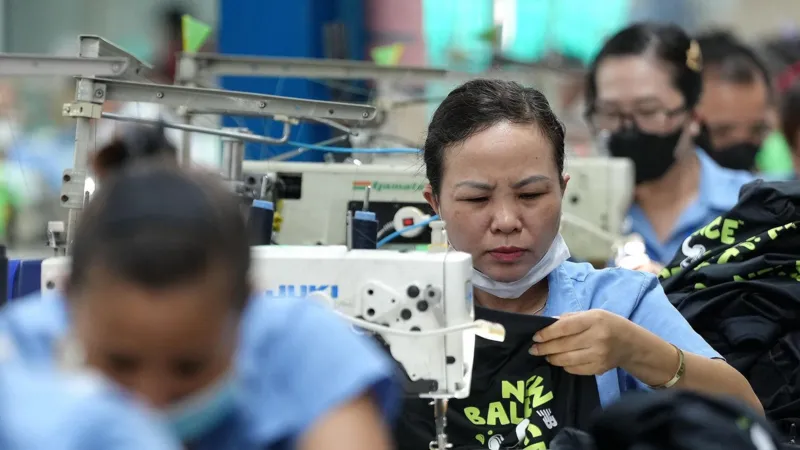In recent years, Vietnam has emerged as a significant player in the global economy, attracting investors and policymakers alike with its rapid growth and ambitious development goals. The country’s strategic location, youthful workforce, and commitment to reform have made it a beacon for foreign direct investment.
However, this upward trajectory faced an unexpected obstacle when former President Donald Trump implemented tariffs on various imported goods, a move that sent ripples through the Vietnamese economy.
The tariffs, which targeted products from several countries including Vietnam, were aimed at reducing the United States’ trade deficit and protecting American jobs. As a result, many Vietnamese businesses that relied heavily on exports to the U.S. found themselves grappling with increased costs and dwindling demand.
The situation was particularly dire for manufacturers in sectors like textiles and electronics, which had become increasingly dependent on American consumers. According to Nguyen Thi Phuong, a textile factory owner in Ho Chi Minh City, “We had plans for expansion, but the tariffs changed everything. We are now forced to rethink our strategies.”
In response to these tariffs, Vietnamese policymakers were tasked with finding a way to mitigate the economic fallout. They sought to diversify their markets by strengthening trade relationships with other countries, including those in Europe and Asia. Such efforts served as a reminder of Vietnam’s resilience and adaptability in the face of adversity.
However, these measures took time, and many companies were left struggling in the interim, leading to layoffs and reduced investments.
Moreover, the tariffs added a layer of uncertainty to the investment climate in Vietnam. International investors, who had previously viewed the country as a stable and attractive option, began to reconsider their positions.
“Unpredictability in trade policy is a significant concern for us,” stated Mark Johnson, a financial analyst. “Investors are wary of entering markets where they cannot anticipate future costs.”
While Vietnam had dreams of becoming a manufacturing hub, the reality of Trump’s tariffs forced a reevaluation of those aspirations. The country learned the harsh lesson that global economic ambitions can be vulnerable to the shifting tides of international politics.
As Vietnam navigates these challenges, the resilience of its people and their determination to thrive will be essential in overcoming the obstacles imposed by external factors. The future remains uncertain, but the spirit of innovation and adaptability that defines Vietnam may yet allow it to turn challenges into opportunities.














